In my previous blog The Truth About Milk, I discussed the dangers of milk, how the nutritional guidelines are inaccurate, and the dairy industry with the government deceived us into thinking we needed 3 glasses of milk a day to be healthy. Now, let’s focus on how to make healthier milk choices and dairy choices in general. Plus, alternatives to dairy.
First off, I don’t believe dairy is bad in general and we just shouldn’t eat it. However, if we are eating the wrong kind of dairy or over-consuming it, it can be very detrimental to our health. Long-term milk has been linked to many health issues including diabetes, colic in kids, breast cancer, lung cancer, prostate cancer, ovarian cancer, obesity, Crohn’s disease, and even osteoporosis.
Is Raw Milk or Organic Milk Better for You?
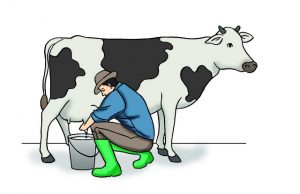 Raw milk is better for you, as most milk is typically pasteurized making it a processed food, not real, whole food. The reason why a good percentage of people can’t properly digest milk is due to the elimination of the lactase (through pasteurization) which is needed to digest the lactose (sugar in milk).
Raw milk is better for you, as most milk is typically pasteurized making it a processed food, not real, whole food. The reason why a good percentage of people can’t properly digest milk is due to the elimination of the lactase (through pasteurization) which is needed to digest the lactose (sugar in milk).
You have to be able to produce lactase on your own and some people can’t. Raw milk still has lactase making it easier to digest. Unfortunately, raw milk is banned in the U.S. so it isn’t readily available to consume. Raw milk does have a healthier profile with a lot more helpful nutrients, but it is still not something we need to consume.
Organic milk doesn’t have synthetic growth hormones, antibiotics, and pesticides, but you are still consuming the hormones from the cows. It will have more nutrients than skim, 1%, 2%, and whole milk, and does have a healthier profile in general. So consuming organic dairy, in general, is better for you. You will still find organic milk can have a lot of sugar, and organic doesn’t guarantee that the milk is coming from grass-fed cows either. The soy and corn cows eat are not natural for them (view meat blog), even though the soy and corn are organic, not genetically modified. Even organic milk is hard for anyone’s body to digest, and is not a natural, whole food. Additionally, cows that provide organic milk might not be treated any better than any other cows (learn more about organic here).
There is a lot of plant-based milk that you can drink which is a lot better for you! However, consuming a bit of organic milk once in a while is okay. It is consuming it every day on a regular basis that is probably not a good choice.
Anchor Hocking 77940COM Anchor 77940 3-Piece Measuring Cup Set
I love the multiple measurements on these glass measuring cups. It is also great to use glass vs. plastic because they are safer to use, and you can also melt food in the microwave in them.
Plant-Based & Other Milk Alternatives
What Dairy-Free Milk is Better for You and Why?
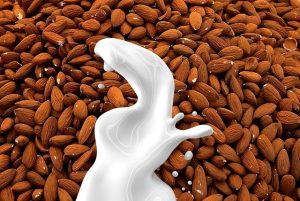 Plant-based milk alternatives include almond, cashew, oat, rice, coconut, soy, hemp, and flax milk.
Plant-based milk alternatives include almond, cashew, oat, rice, coconut, soy, hemp, and flax milk.
First off, rice and oat milk are grain-based milk, which as I mentioned in my blog on flour, consuming a lot of grains isn’t healthy for you. So the nutritional profile is not as good for you as the plant-based milk alternatives. I also wouldn’t recommend soy milk. As I mentioned in my GMO blog, it is best to consume less soy due to it be one of the top five allergens, the fact it can mimic estrogen, and it is often genetically modified. The nut-based kinds of milk (almond, cashew, coconut) are good for you unless of course, you have a nut allergy.
Hemp milk is also very healthy for you with lots of omega-3 fatty acids and all the essential amino acids your body needs. Then, there is flax milk made from flax seeds. It is extremely healthy for you as flax seeds are like a superfood with vitamins A, B12, and D. Flax milk has lots of fiber and a high content of alpha-linoleic acids, known to help prevent heart attacks, keep blood pressure low, improve blood vessels, and lower cholesterol. It also gives you lots of Omega 3s which most of us are deficient. This could help prevent cancer, diabetes, heart diseases, and strokes.
Spectrum Essentials Organic Ground Premium Flaxseed, 24 Oz I try to incorporate these into my diet since they are a superfood and a good source of Omega 3s. They are a great addition to smoothies, yogurt, and other recipes.
I have actually yet to try both hemp and flaxseed milk so I can’t tell you much about the flavor profile.
Dairy-alternative milk tends to have fewer calories, less fat (except for coconut-based milk), more water content (for better hydration), less protein (except soy). Some are fortified with other vitamins and nutrients. (Ferreira, 2019). They all have different benefits as far as vitamins and nutrients, so it is hard to say one is better than another. I think it comes down to preference. However, the most popular choices are almond and coconut milk, as they also work great in recipes too.
Just to be clear, it is not necessary to consume 3 glasses of any type of milk every day. So just enjoy in moderation.
Other Considerations for Dairy-Free Milk Choices
Just because most of these milk options are better for you than cow milk, it doesn’t mean they can’t be unhealthy. You still need to read labels for added sugars. If you are consuming milk with a ton of added sugar, you will not be doing yourself any favors. As I mentioned in my sugar pain blog, we consume way more sugar than we should, it is a large part of our chronic illness epidemic. It will also be beneficial to look for organic options, as a way to avoid any pesticides or other unnatural food processes done to the milk.
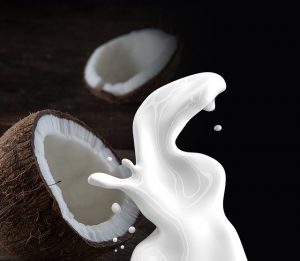
My Personal Preference
I typically purchase almond milk that is unsweetened (sometimes with vanilla). Almond milk I prefer when making homemade lattes and it works great in recipes, but sometimes coconut milk is a better choice depending upon the recipe. I highly recommend using plant-based milk in your recipes. It makes them healthier and the flavor profile is usually pretty good, as well. For pretty much all of my recipes, I use plant-based milk, natural sugars, and wheat-free flour. I’ve found consuming fewer sugars, helps maintain my weight better, helps me avoid lethargic feelings, and I feel all-around healthier because even my sweets have nutrients in them.
Many people have the impression that baking recipes that are gluten-free, dairy-free, or sugar-free are not going to taste as good. I have actually found the opposite to be true. I taste more flavors! Most of the boxed gluten-free food isn’t very good, but I have made some awesome recipes from scratch.
Need help finding recipes? If you haven’t yet, check out my Pinterest for ideas on cooking and baking healthier foods. The book below will also help you get started on baking healthier!
Bakerita: 100+ No-Fuss Gluten-Free, Dairy-Free, and Refined Sugar-Free Recipes for the Modern Baker This cookbook could be just what you need to get started with not only healthier, delicious recipes, but information on the different ingredients that are gluten-free, dairy-free, or refined-sugar free.
Choosing Healthier Dairy Products
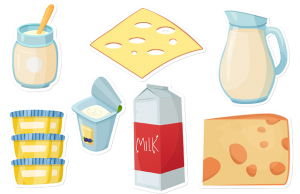
You already know how to choose healthier milk products, so some other dairy products I want to discuss include cheese, butter, and yogurt.
First, it is super important to know: you are better off just eating full fat when it comes to cheese, yogurt, and milk. Low-fat, fat-free are actually not healthier for you and are less tasty. For example, you miss out on the natural fats in cheese that provide energy and balance blood sugar. Full fat provides more nutrients, makes you full faster, and is associated with less risk of obesity. Just because full fat is ultimately better for you, it is still necessary to pay attention to how much you consume. Always view serving sizes and limit your dairy consumption in general. View other benefits of full fat according to science here.
Choosing Healthier Cheese
Should we consume cheese? It is not nearly as problematic as cow’s milk, it can have some health benefits. Cheese is a good source of protein and fat with lots of healthy vitamins. I absolutely love cheese and wouldn’t give it up unless forced to. However, over the years I have made a point to eat a lot less of it. I will only plan two recipes or less with cheese a week. Too much can lead to high cholesterol and high blood pressure among other health issues.
Professional Box Grater, Stainless Steel with 4 Sides
If you need a heavy-duty cheese grater, I recommend this one. It is a bit bigger than most graters, has a sturdy handle, and just the right slant making it easier to shred cheese.
Why Organic Cheese is Worth It!
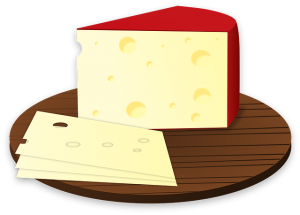
Organic cheese is healthier with more vitamins, antioxidants, and Omega 3s.
As I mentioned in my Truth About Milk blog, artificial growth hormones rbST or rBGH are injected into the cows to increase milk production and this was created by Monsanto. Although there is little to go on as to how this affects humans, it is not healthy for the cows. So choosing rbST free cheese is a good choice to make, but an even better choice is organic cheese because there could be other hormones given to the cows.
Organic cheese is not only healthier with more vitamins, antioxidants, and Omega 3s, but you are also consuming fewer toxins and pesticides. Growing kid’s bodies are especially sensitive to consuming lots of pesticides and toxins. Besides being free from hormones, pesticides, and antibiotics, organic cheese also comes from 100% grass-fed cows. Which is healthier for your body, healthier for the cows, and healthier for the environment. Organic cheese is worth it!
Cheese to Completely Avoid
Always avoid pre-shredded cheese. Pre-shredded cheeses can have numerous unhealthy preservatives including a lot of cellulose, which isn’t great for you in large amounts. You also get less actual cheese, and it is usually more expensive. It also literally tastes like crap compared to cheese shredded from a block. I can taste the difference!
Buy blocks and shred them yourself, it is a bit more work, but it is worth it. It can be super quick if you have the salad shooter below. Blocks of cheese often taste better than pre-sliced and are typically more natural. If you are looking to buy pre-sliced cheese make sure to check the ingredients. Definitely never buy American cheese, it is completely processed, artificial cheese.
Presto 02970 Professional SaladShooter! Shredding cheese wasn’t a problem for our small family until my husband got interested in making homemade pizzas.
Rotary Cheese Grater this works great when shredding harder cheeses like parmesan cheese. You have probably seen this used at multiple Italian restaurants.
Some of the healthiest cheeses include feta, cottage cheese, romano cheese, and ricotta cheese.
Choosing Quality Butter
As I mentioned in my blog on meat, cows are typically fed grain-based foods including GMO corn and soy, which is not good for our health, and also leads to cows consuming unnecessary antibiotics. It is not natural, it is not good for the cows. You are also missing out on a lot of nutrients, omega 3s, vitamins, minerals, and antioxidants. Switch to 100% grass-fed butter.
Our grass-fed butter of choice in our home is Kerrygold it tastes really good. It costs a bit more than regular butter but we use it so infrequently that it is worth paying a bit more for.
 Butter is a great source of fat, and you need fat in your diet. If you are thinking…” wait.. I thought fat was bad for me,” then you might have missed my history of sugar blog where I talk about how fat was blamed for obesity, heart disease, and more when the real culprit is sugar!
Butter is a great source of fat, and you need fat in your diet. If you are thinking…” wait.. I thought fat was bad for me,” then you might have missed my history of sugar blog where I talk about how fat was blamed for obesity, heart disease, and more when the real culprit is sugar!
Clarified Butter – Ghee
Even more beneficial to your health is clarified butter A.K.A. ghee. According to Ayurveda, it improves the absorption ability of the small intestines and decreases the acidic pH of our gastrointestinal tract (Das, 2018.). It is also rich in Omega-3 fatty acids decreasing cholesterol. Ghee actually helps remove toxins from our cells, improves gut health, and strengthens bones, hair, and skin. I am very familiar with ghee as it was an essential part of the Ayurveda detox I did through my Ayurveda practitioner. Ayurveda is the oldest form of medicine and is extremely fascinating. I will tell you more about it when I get to the alternative treatments section of my blog.
4th & Heart Original Grass-Fed Ghee Butter
This ghee is of the highest quality and tastes great. Ghee according to Ayurveda medicine can actually provide nutrients for cells and help detox the cells of the body.
Choosing Healthier Yogurt – Avoiding High Sugar, Avoiding Bugs & more!
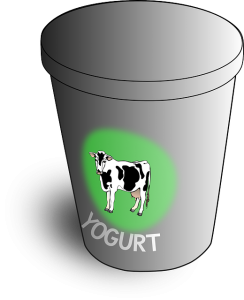 When choosing yogurt, you want to choose full-fat. It is better for you! Then, you also want to check the sugar content. Just about any flavored yogurt is going to be overloaded with sugar. You are better off just adding some honey or other natural sweetener to your yogurt. But, that’s not the only reason to avoid flavored yogurt – bugs are often added to create those vibrant colors! Yes, that’s right bugs! These bugs are called carmine. While they are usually safe for most people to consume, it seems like you are getting some fake fruit ingredients if they need bugs to create an appealing color. Read more here on brands that use bugs.
When choosing yogurt, you want to choose full-fat. It is better for you! Then, you also want to check the sugar content. Just about any flavored yogurt is going to be overloaded with sugar. You are better off just adding some honey or other natural sweetener to your yogurt. But, that’s not the only reason to avoid flavored yogurt – bugs are often added to create those vibrant colors! Yes, that’s right bugs! These bugs are called carmine. While they are usually safe for most people to consume, it seems like you are getting some fake fruit ingredients if they need bugs to create an appealing color. Read more here on brands that use bugs.
Yogurt can actually be super beneficial to your health if you purchase a quality product. As far as yogurt still made from cow’s milk, plain, full-fat (whole milk) Greek yogurt is one of the best choices you can make. It is full of beneficial probiotics that other yogurts lack. My husband and I like to add it to smoothies and often use it as a sour cream substitute.
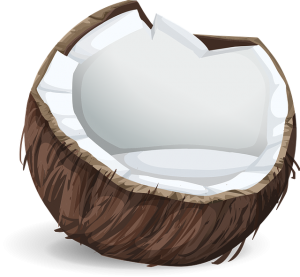 Alternatives to Dairy
Alternatives to Dairy
I was dairy-free for over three months, and it was a bit challenging but super beneficial to my long-term health. I definitely learned how to eat less cheese and learned to love almond milk. My health definitely improved, and my husband who wasn’t having any real health issues noticed health improvements, as well.
I haven’t experimented too much with dairy-free cheeses, but Daiya I hear is the best brand for dairy-free cheese and they have a dairy-free yogurt, as well. I have tried the dairy-free yogurt and found that enjoyable, and their ice cream I absolutely love! The yogurt and ice cream both use coconut instead of cow’s milk.
Practical Paleo, 2nd Edition (Updated and Expanded): A Customized Approach to Health and a Whole-Foods Lifestyle This book has easy, delicious recipes, plus guidance on meal plans to possibly help with some specific health conditions. Everything you need to know as a beginner to eating paleo recipes. This book is written by a Certified Clinical Nutritionist.
Nom Nom Paleo: Food for Humans
This recipe book has over 100 recipes and fun and funny step-by-step photographs and cartoons. Makes cooking fun! No added sugars and unprocessed ingredients.
Other Food-Related Blog Content
Choosing Healthier Fish
How to make Real Food Choices
When is Organic Really Worth it? Choosing Fruits and Vegetables
Steps to Reduce Sugar Consumption
30 Clean Snacks and Desserts
Tips to Eat Healthier with Dairy
- Limit milk consumption and choose organic milk or plant-based milk
- Choose organic cheese or dairy-free cheese
- Switch to grass-fed butter or try Ghee
- Choose greek yogurt (full-fat with minimal sugar) or try dairy-free yogurt
Download this Free Guide:
Roadmap to Eating More Real Food & Reducing Sugar Consumption
View More Healthy Eating Blogs
- 8 Tips on How to Eat Less Packaged Food (Less Junk Food)
- Over 30+ Gluten and Dairy Free Breakfast Ideas (& Sugar-Free)
- Reading and Decoding Food Labels & Toxic Ingredients
- 11 Superfoods for a Diet Higher in Nutrients
- 30 Clean Snacks and Desserts (Gluten-Free, Sugar-Free & Dairy-Free Options)
- The Truth About Milk – Why We Don’t Need it to Stay Healthy
- Guidelines & Steps to Reduce Sugar Intake
- Wild Caught vs Farm Raised Fish – What is the Difference? Which is Healthier?
- How to Choose Healthier Meats
- What Does Non-GMO Mean? Are GMOs Safe?
- How to Eat Real Foods & Why It Is Essential for Your Health
- When is Organic Really Worth it?
- Organic vs. Natural: What is the difference?
- Is White Flour Bad For You? Should We Be Eating Less Carbs?
- How the Sugar Industry Tricked us for 50 Years
- Sugar Pains? Sugar – One of our Biggest Enemies!
Resources
The Organic & Non-GMO Project/Monsanto urges FDA to stop “misleading” rBST-free labeling. (2017, May) Retrieved from: https://non-gmoreport.com/articles/may07/misleading_rBST-free_labeling.php
Price CHHC, Annie. (2018, March 10). Dr Axe/Is Cheese Bad for You? Top 5 Healthiest Cheese Options & Benefits. Retrieved from: https://draxe.com/nutrition/healthiest-cheese/
Care2. (2016, May 2). EcoWatch/All About Organic Cheeses – Are They Better For You?. Retrieved from: https://www.ecowatch.com/6-alternatives-to-milk-which-is-the-healthiest-1891128088.html
Walden, Rebecca. (2019, April 23). Reader’s Digest/The Sneaky Ingredient That’s Hiding in Your Shredded Cheese. Retrieved from: https://www.rd.com/article/cellulose-shredded-cheese/
Das, Soma. (2018, August 2). Hindustan Times/Benefits of ghee for weight loss, a teaspoon daily on empty stomach will help you lose weight. Retrieved from: https://www.hindustantimes.com/fitness/ghee-for-weight-loss-nutrition-benefits-and-when-to-have-it/story-ufkPObq1I9NqOYqAZsnLWM.html#:~:text=Ghee%20is%20considered%20to%20be,acids%20which%20decrease%20LDL%20cholesterol
Ferreira, Sanae. (2019, January 25). American Society for Nutrition/Going nuts about milk? Here’s what you need to know about plant-based milk alternatives. Retrieved from: https://nutrition.org/going-nuts-about-milk-heres-what-you-need-to-know-about-plant-based-milk-alternatives/
I have a Wellness Coach Certificate, I’m an entrepreneur, an innovator, writer, and artist. My expertise includes over 7 years of marketing, research, and developing content for holistic health businesses. Plus, my own personal journey of becoming chronically sick: understanding what went wrong, and finding a way to heal and live a healthier life. I have a passion for wellness with a wealth of knowledge surrounding: wellness, flaws in healthcare, root causes for chronic illnesses, and alternative treatments.

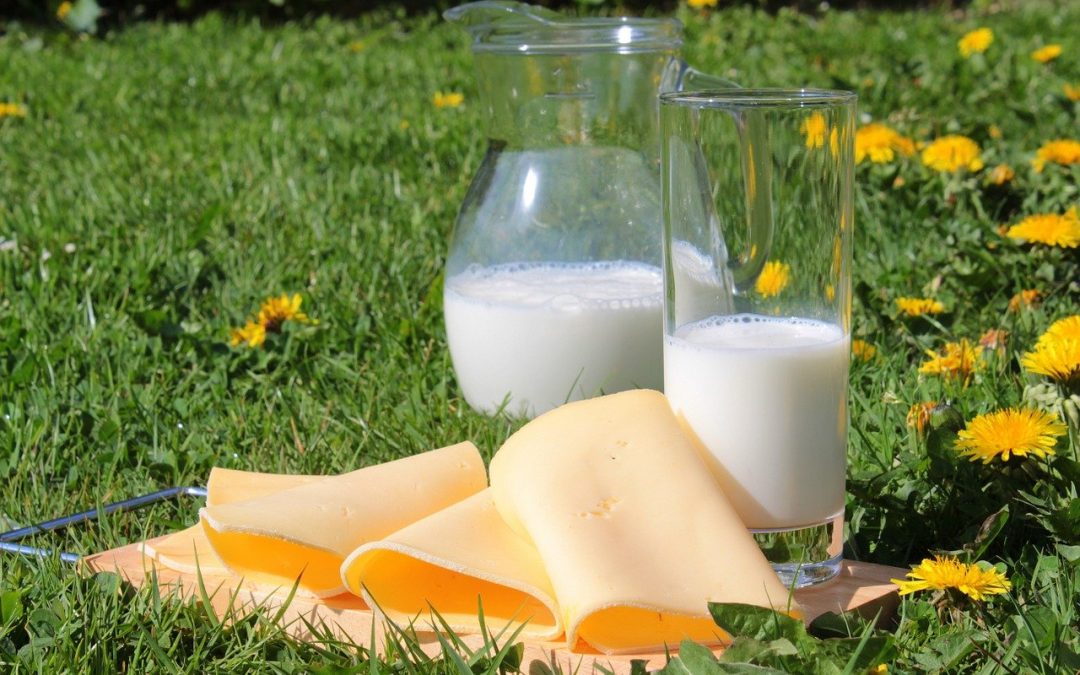
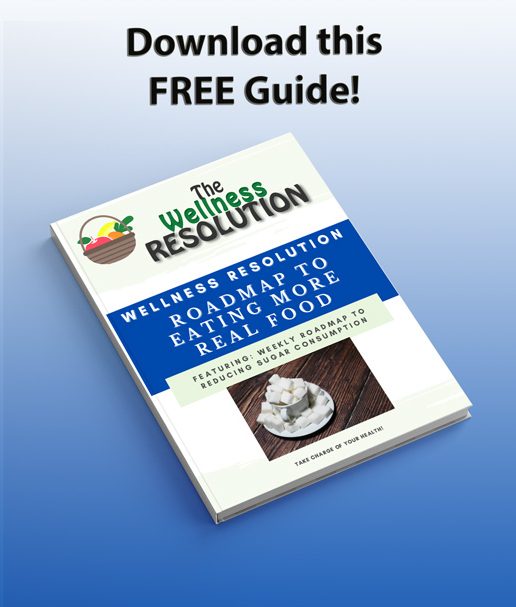


So much awesome information I’ve learned a lot! Great article! Thanks for sharing!